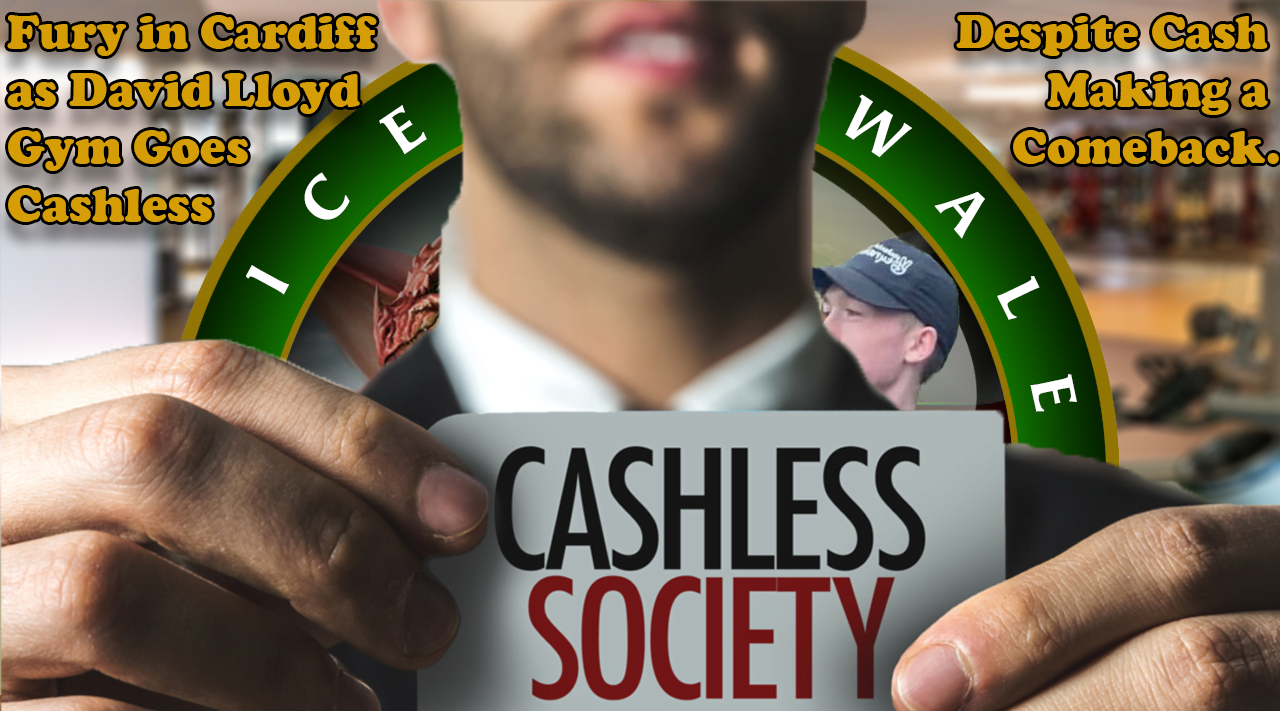
It seems a new story comes every week as another business decides to go cashless. This is very concerning to a large number of people as they fear that a cashless society and WEF ‘great reset’ is imminent.
In fact, just a couple of weeks ago we covered another woman who was furious at the Cardiff Central Youth Club as they also went cashless.
In that article I described, “more and more businesses are beginning to go cashless, which is unsurprising, especially since cash transactions have been on a steady decline over the past decade. From 50% in 2010 to only 17% in 2020, cash use is at an all time low. Many researchers on the topic have attributed this decline to many reasons; efficiency, rewards and even a research paper by the Bank for International Settlements (BIS) claims this was accelerated by the Covid-19 Pandemic.”
What is also concerning is the amount of businesses, like Tesco’s and Aldi, that are replacing jobs with self-serve checkouts. According to an article from Finance Online, automation will displace 85 million jobs globally by the year 2025 and this is why it’s just as important to use the managed tills, just as it is cash.
A positive figure, however, points out that “cash payments [are] still used by 1.1m people for day-to-day shopping”, but is this enough? The only way we can ensure cash’s future is by constantly using it. It is vital that more people continue to use cash, as without it and a central bank digital currency, as praised by Sunak, freedom is gone and instead all your purchases will be based on how much carbon your using day-in and day-out, during lockdowns you will not be able to leave your area, which is currently an ongoing issue in Oxford, despite no alleged “health emergency”, where you need a permit to drive out of your local area. More people need to use cash and they need to use it now.
Moreover, we recently contacted a woman who was conveying her concerns on social media as a gym in Cardiff had gone completely cashless. She told Voice of Wales, “when I was a member last year I can remember my cash being refused in the bar… sh*te as I had a 10% discount off the bar with my membership that I couldn’t benefit from because I refuse to use a bank card to pay.”
The woman who wished to remain anonymous, further explained, “I think people need to wake up and start using cash more… they actually believe the cashless crap is about convenience… drives me insane!!! I can see them all going cashless soon to try to convert everyone to their way.
“Cafe Nero down Leckwith has done the same… I purposely placed a big order and when they told me they didn’t take cash after they had made the order, well ….(like I did at Starbucks when they went cashless, but have since reverted back to cash!).”
Debbie Hicks founded Keep it Cash to oppose businesses going cashless and pushing people out of jobs to make way for automation, she explained, “Keep it Cash is a grassroots drive and street campaign to inform the British people about the plans for a cashless society and central bank digital currency – with programmable money and what this will mean for them as workers, consumers, citizens and business owners.
“The campaign is a drive to encourage and support local activists around the UK to do more to keep cash alive in their communities.”
Hicks further explained the detrimental impact a cashless society could have on people globally, “the cashless society being planned by the big banks that links to biometric payment systems (finger prints, retina scans, facial recognition cameras) is planned to be programmable money, that is, all the customers these cashless businesses rely on will only be able to spend money on what the banks and government decide. This could mean that businesses selling products or services with a high carbon footprint, or something deemed unhealthy or not necessary will end up losing custom and their business. The problem with an economy that’s controlled and not free, is that the goal posts as to what’s acceptable or programmed will keep changing so that in the end, most businesses will be affected and destroyed.”
I additionally questioned Hicks on what level support for her campaign group is seeing from the general public. “It’s hard to put an accurate figure on it, but I would say over 80% of people I talk to are worried about losing cash and the impact on their freedoms.
“This is mirrored in the recent news from the Bank of England that cash has gone up in circulation in the UK in the last six months.
“Historically, in times of economic crisis people use cash more.”
The latter point is an interesting one, an article from the Guardian explained, “cash has made a comeback as a result of the cost of living crisis, with record amounts being withdrawn as consumers increasingly rely on notes and coins to help them manage their budgets, figures show.
“While the pandemic accelerated the UK’s embrace of card and digital payments, the economic crisis – with inflation going up and many bills expected to rise further – has led a growing number of people to turn once again to cash to help them plan their spending.”
This fortifies the importance of cash, which having an intrinsic and emotional value – as opposed to just numbers on a screen – means people spend less and helps to budget their money.
A report from the Post Office claims that cash withdrawals had increased by almost “8% month-on-month” (£744 million in June and £801 million in July 2022) and has increased by over 20% year-on-year since July 2021 (£665 million).
The Post Office further said that it was “seeing more and more people increasingly reliant on cash as the tried and tested way to manage a budget”. Which as I just explained, highlights the need for a system that heavily involves cash. To remove cash would highly damage people’s ability to budget, among other aspects including taking away people’s freedom and privacy to do with their money as they please.
In an email to Voice of Wales, they told us that, “at David Lloyd Clubs we are constantly looking for ways to improve member experience through investment in technology.
“All of our clubs became cashless in 2020, when we reopened after the first national lockdown. Initially the decision was made as a safety measure to protect both team and members who had become used to contactless payments as it speeds up the payment process, reducing que times and improving member service.”
There seems to be a pattern of businesses going cashless as a result of the so-called “pandemic”, this is mirrored by other companies such as TFW (Transport for Wales), with some train guards not accepting cash as a method of paying for a ticket. And as I pointed out at the beginning of the article, the Bank for International Settlements did a study on the topic, concluding the same; that Covid-19 accelerated the decline in cash use.
Furthermore, the World Economic Forum said that Covid was a test of “social responsibility”… your compliance, was this also a way to rapidly switch people from cash to digital as a way to faster implement a WEFs’ great reset?
David Lloyds Club further added, “Members can use contactless payment throughout the club, and in our Clubrooms. Alternatively they can pay for additional products such as PT and kids classes using our app or via direct debit. The new app also allows our members to order food and drink from the Clubroom directly to their table, meaning they no longer need to go to the tills to order or pay.”
1 Comment
Submit a Comment
You must be logged in to post a comment.











This is terrible. A cashless society and its implications would be awful.